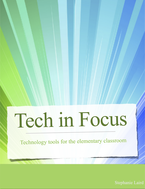 For a while I've been brainstorming ways I could combine my passion for writing with my passion for sharing technology integration ideas with educators. Social media has been a great outlet, but 140 characters limits the depth to which I can share ideas, and with the vast amounts of chats and information being shared, it's not always guaranteed that readers will stumble across the tweets or posts. So, what is someone like me, who wants to share ideas, to do? There has to be an outlet! Introducing: Tech in Focus! Through Tech in Focus I plan to publish a collection of eBooks, videos, and more, each focused on a specific tech tool that can be used in an elementary classroom. At least one eBook will be released per month, and the ideas and examples shared will be tied to areas of the Big Four: Content planning, instruction, assessment, and community building. I hope Tech in Focus will be the outlet I've been searching for, and allow me to continue sharing my ideas and experiences revolving around tech integration and the Big Four at the elementary level. I've created a Tech in Focus page on this site, and will add the titles as they are released on the iBooks store and my YouTube channel. Below you will find the introductory Tech in Focus video:
0 Comments
Recently the International Literacy Association (ILA) tweeted out the following question: "What is the best advice you could give to a first year teacher?" Since I have been serving as a mentor to two first year teachers this year, I was interested in what responses the tweet would elicit. Along with waiting to read the responses from fellow educators, I went ahead and submitted my own. Anyone who has heard me speak, read anything on my social media accounts, or has seen me in the classroom shouldn't be surprised that I included these three "P" words in my answer: positive, passionate, and PIRATE! It turns out my answer resonated with someone at ILA because not long after, I found out it would be included in their ILA Conference issue, which is out now.
What advice would you give to a first year teacher? "They'll get there"
These three words were shared during a recent professional development brainstorming session where I was talking to different PLN members about an upcoming PD I would be leading. In my position as an Instructional Coach, I work with teachers on different areas of The Big Four and many times this work includes integrating the available technology into all areas of their curriculum and instruction. Whether I'm planning building level PD or working one-on-one with a teacher during a coaching cycle, the Big Four is always at the forefront of my mind. With technology PD planning, the challenge for me is to adequately balance 1) the requests for more tech resources and 2) analyzing and addressing the BrightBytes Clarity data. I love focusing on data, but I also know not every educator out there likes to dig into data or may take data too personally to tackle in a large group format. Many just want resources, aka tech tools, that they can immediately take back to their classroom. Tools are easy to implement, where as taking time to analyze Clarity data can result in changing how one teaches, which may not be as simple. I do get excited when I run across a new resource, but I don't let my excitement cloud my ultimate goal for students to use technology to be creative, collaborative, and grow as critical thinkers. You see, it's not the number of apps on an iPad or tiles in a Symbaloo webmix that impact a student's learning, it's the teacher. Based on what content is being taught, the teacher chooses how and when they'll use the technology, what strategies they'll use to hook students, and how open ended they'll make the individual and collaborative activities. My job is to support teachers in these decisions as we work together toward the goal of impacting student learning. I have yet to find the perfect harmony; but as I try to find this balance, I need to keep in mind that it's a process and eventually, we'll all get there. I originally shared this video with staff during our district's data day in January, but with Daylight Savings time today, parent teacher conferences coming up this week for my district and Spring Break around the corner, I figured it wouldn't hurt to share it here as well in case any of you need a pep talk! So, as the Kid President says, keep teaching the world to be more awesome and continue inspiring your students!
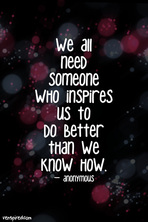 What is the legacy you want to leave with your students? This week the elementary Instructional Coaches in my district began reading High Impact Instruction by Jim Knight. We are working on a playbook of the Big Four, Content Planning, Formative Assessment, Instruction, and Community Building, and are using this book as the framework of our work. As I began reading the content planning section, I was struck by how Knight began the chapter. Rather than jumping right in and discussing guiding or essential questions, he took the time to explain that through content planning, teachers are adding to their legacy. Knight shared that a teacher's legacy is passed on through "modeling, instruction, encouragement, feedback, smiles, and suggestions," which reminded me of a phrase Dave Burgess says often "lessons they'll forget, experiences they'll remember forever." (Don't worry, I promise this wont turn into yet another post about Dave Burgess and his book Teach Like a Pirate) So how does a teacher's legacy tie in to content planning? Well, Knight says neither content planning or legacy is more important than the other, but that as you sit down to plan a lesson or unit, to ask yourself what you want students to remember ten years from now. This question allows you to weed out the minute details and focus in on the big ideas that will transcend lessons, content areas, and even grade levels. Now that I am not in the classroom full time, and am instead supporting teachers as an Instructional Coach, I am still leaving a legacy, but rather than being solely based on my teaching in my classroom, it's occurring through my professional learning opportunities, coaching cycles, and yes, even social media. Through these venues I am supporting current classroom teachers looking to impact student learning and grow as professionals. I don't know what my legacy will be. I have goals, dreams, and hopes for my professional career, and work towards those every day, but ultimately it isn't up to me to decide. So, get planning and as you do remember to focus on the big ideas, experiences, and doing what you know is best for kids! "To teach is to leave a legacy."- Jim Knight, High Impact Instruction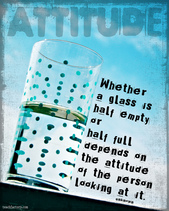 This morning I had a conversation with a fellow educator and after sharing that during the day I was going to be modeling lessons, visiting classrooms, and attending a meeting, they asked if I felt like my work was ever done. I was surprised by the question and responded that I wouldn't want my work to be done because I am here to help teachers impact student learning, so if the work is done, I'm not doing my job. Later, as I went into classrooms and watched students practicing math, writing, and reading, I thought back to the question and knew that with the students and teachers I support, I had answered correctly. There's something special about seeing students get excited because they can read a new book or solve a multi-step story problem, or watching a teacher use a new instructional strategy or technology resource you shared. It's these moments, no matter how big or small, that I feed off of because I know that our students deserve nothing less than the best educational experience we can give them. While some readers may think I have a naive outlook and think there's no way I can be so positive all the time, I assure you I do have days when I feel overwhelmed - we all do! The biggest thing is to let those moments make you lose sight of what you're working toward. This week I attended the first day of a two day workshop on Facilitating Adult Learning. While I have presented and facilitated numerous professional learning opportunities in my building and district, as well as at local, state, regional, and soon national conferences, I am always looking for additional strategies and ideas to add to my toolbox. Now that I am serving as an Instructional Coach, and am assisting in the professional learning of teachers in my building, I knew that there was no time like the present to attend this workshop and grow as a learner, coach, presenter, and facilitator.
During the workshop, the instructors and participants discussed what professional learning was, and most people there mentioned "sit and get" conferences and workshops. I, on the other hand, thought outside the typical Professional Development settings and referenced social media and the impact my virtual PLN has played in my growth as a professional. As I sat in the workshop, I began thinking about the Personalized PD I implemented earlier this school year. As you can imagine, because Personalized PD involves choice, it quickly became a huge hit! While it has been successful, there's always room to improve. Lately I've been thinking how I could use our 1:1 devices to extend and enhance teacher learning. Through Twitter chats like #Educoach, my PLN on Voxer, and reading several blogs by professional development leaders and fellow Instructional Coaches, I began to explore how online resources like iTunes U, Teaching Channel, Atomic Learning, and even eBooks published with iBooks Author or Book Creator, can serve as professional learning platforms. I'm still working out how this would function, but am intrigued by the potential these tools hold! |
Archives
October 2023
Categories
All
|
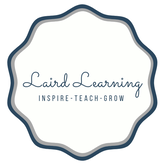
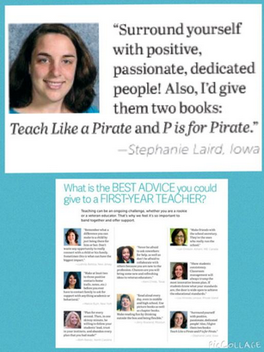
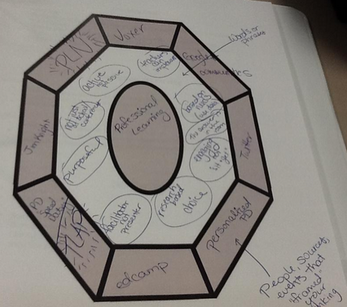
 RSS Feed
RSS Feed
